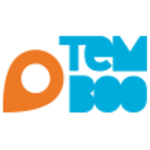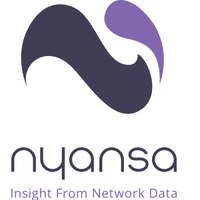Description

Oracle Cerner

Temboo
Comprehensive Overview: Oracle Cerner vs Temboo
Oracle Cerner Overview:
a) Primary Functions and Target Markets:
-
Primary Functions: Oracle Cerner specializes in health information technology solutions, offering electronic health records (EHR), health information exchange, and data analytics. Their solutions facilitate the documentation, sharing, and analysis of patient health data to improve healthcare delivery and outcomes.
-
Target Markets: Oracle Cerner primarily targets healthcare organizations, such as hospitals, clinics, and other healthcare providers. They also serve public health organizations and have engagements in the government sector, providing solutions that support large-scale health IT infrastructure.
b) Market Share and User Base:
- Oracle Cerner is a significant player in the health IT market, particularly in the United States. It is one of the leading EHR vendors, competing with companies like Epic Systems. The company's market share is substantial, with a considerable number of healthcare facilities using their solutions worldwide. However, detailed statistics on exact market share and user numbers are proprietary and can fluctuate over time.
c) Key Differentiating Factors:
- One of Oracle Cerner's key strengths is its comprehensive suite of healthcare solutions that can be customized to fit various healthcare providers' needs. Their expertise in integrations and focus on longitudinal health records also serve as critical differentiators. Additionally, the recent acquisition by Oracle enhances Cerner's technological capabilities with Oracle’s cloud infrastructure and database solutions.
Temboo Overview:
a) Primary Functions and Target Markets:
-
Primary Functions: Temboo provides a software platform that facilitates the integration of cloud services, APIs, and unconventional computing environments. It focuses on enabling developers to build applications that interact with physical devices, cloud services, or data sources seamlessly.
-
Target Markets: Temboo targets developers and businesses involved in Internet of Things (IoT) projects, providing them with tools to develop automated workflows, especially in industrial IoT, smart cities, agriculture, and environmental monitoring sectors.
b) Market Share and User Base:
- Temboo operates in a niche market focused on IoT application development and integration. Its market share is smaller compared to broad-spectrum IT companies. However, Temboo's user base consists of a mix of small to medium-sized enterprises and developers seeking agile IoT solutions. Exact figures on market share are less prominently reported compared to larger IT firms.
c) Key Differentiating Factors:
- Temboo's differentiation lies in its low-code platform that simplifies the process of connecting physical devices to the cloud. Its library of pre-built code snippets and cross-platform support provides a significant advantage for rapid IoT application development. Temboo excels in making complex system integrations more accessible to a broader range of users without extensive programming experience.
Comparison and Conclusion:
-
Market Focus and Scale: Oracle Cerner operates on a much larger scale in the specific field of healthcare IT compared to Temboo's focused approach on IoT solutions.
-
Technological Offering: Oracle Cerner's offerings are comprehensive and primarily healthcare-centric, while Temboo provides flexible integration tools across various IoT applications.
-
User Community: The user base for Oracle Cerner is more centralized within the healthcare sector, while Temboo attracts diverse developers and businesses working on IoT across different industries.
Both Oracle Cerner and Temboo serve distinct markets and offer unique technological solutions that cater to their specific industry needs. Each has its strengths, with Cerner’s robust health IT ecosystem and Temboo’s nimble IoT integration platform.
Contact Info

Year founded :
Not Available
Not Available
Not Available
Not Available
Not Available

Year founded :
2013
+1 212-274-8555
Not Available
United States
http://www.linkedin.com/company/temboo-inc-
Feature Similarity Breakdown: Oracle Cerner, Temboo
Oracle Cerner and Temboo serve different purposes and industries, which is reflected in their features and functionalities. Here's a breakdown of their core features, user interfaces, and unique features:
a) Core Features in Common:
Oracle Cerner:
- Primarily focuses on healthcare solutions, offering electronic health records (EHR), patient management, and health information technology.
Temboo:
- Primarily a cloud-based platform offering tools for IoT (Internet of Things), API interactions, and automation.
Common Features:
- API Integration: Both platforms offer robust API integration capabilities, allowing external systems to connect and exchange data.
- Data Management: Both support data processing, though in different contexts (healthcare data management for Oracle Cerner and IoT data management for Temboo).
- Security Components: Both platforms emphasize data security, which is critical in healthcare and IoT respectively.
b) User Interface Comparison:
-
Oracle Cerner:
- Designed for healthcare professionals, with a focus on usability in clinical settings.
- Interfaces are typically form-based, allowing for detailed data entry and retrieval.
- Prioritizes patient charts and medical information transparency.
- Uses dashboards tailored for healthcare providers to track patient health metrics.
-
Temboo:
- Generally more technical and developer-focused.
- Includes interfaces for building and deploying IoT solutions, so it often provides code snippets and visualization for data streams.
- Offers a more modular and customizable design to accommodate different IoT use cases.
c) Unique Features:
Oracle Cerner:
- Comprehensive EHR Solutions: Offers a suite of integrated health record features tailored to different healthcare provider needs.
- Patient-focused Tools: Includes patient portals for improved patient engagement.
- Clinical Decision Support Systems (CDSS): Provides tools to assist healthcare professionals in decision-making.
Temboo:
- IoT Workflow Automation: Provides tools for automating the deployment and management of IoT workflows without needing extensive programming.
- Multi-Environment Compatibility: Deployed across various operating systems and environments, suitable for diverse IoT applications.
- Low-Code Tools: Caters to non-developers with drag-and-drop options for building IoT applications.
In summary, Oracle Cerner and Temboo operate in distinct domains with Oracle Cerner focusing on healthcare IT solutions and Temboo on IoT development tools. Their overlap is mainly in data handling and security, but their core functionalities and interfaces reflect the specific needs of their target industries.
Features

Patient Care
Data and Analytics
Operational Efficiency

Enhanced Workflow Automation
User-Friendly Interface
Comprehensive Support
Security and Reliability
Best Fit Use Cases: Oracle Cerner, Temboo
Oracle Cerner Use Cases:
a) For what types of businesses or projects is Oracle Cerner the best choice?
Oracle Cerner is particularly well-suited for the healthcare industry. Here are some specific scenarios where it excels:
-
Hospitals and Health Systems: Oracle Cerner provides comprehensive Electronic Health Record (EHR) systems that help hospitals streamline operations, improve patient care, and enhance data management.
-
Integrated Delivery Networks (IDNs): Large healthcare networks benefit from Oracle Cerner's ability to integrate across various facilities and services, enabling seamless information exchange and coordinated care.
-
Ambulatory Clinics: Smaller healthcare providers such as specialty clinics, outpatient facilities, and primary care practices can benefit from Oracle Cerner’s tailored solutions that improve efficiency and patient engagement.
-
Government and Public Health: Organizations involved in public health initiatives can leverage Oracle Cerner’s tools to track population health, manage data across regions, and support public health interventions.
Oracle Cerner is best for businesses or projects that require robust, scalable, and integrated health IT solutions. It is ideal for healthcare organizations looking to improve operational efficiency, enhance patient care, and comply with healthcare regulations and standards.
b) In what scenarios would Temboo be the preferred option?
Temboo is a cloud-based software platform that helps developers and businesses easily integrate physical devices with web-based services. It is most advantageous in the following scenarios:
-
Internet of Things (IoT) Projects: Temboo simplifies the connectivity between hardware and cloud services, making it an excellent choice for developing IoT applications across various industries.
-
Rapid Prototyping: For startups and businesses that need to rapidly prototype and iterate on IoT or automation projects, Temboo provides a user-friendly interface and tools that expedite development.
-
Automation and Workflow Integration: Businesses looking to automate processes can use Temboo to connect disparate systems and services, integrating them into cohesive workflows without extensive coding.
-
Cross-Platform Data Integration: Projects that require the integration of data from multiple sources and platforms can benefit from Temboo's diverse range of API integrations, enabling seamless data flow and interoperability.
d) How do these products cater to different industry verticals or company sizes?
-
Oracle Cerner:
- Healthcare Focused: Primarily serves the healthcare sector, making it highly specialized and tailored for industry-specific needs such as patient management, clinical workflows, and regulatory compliance.
- Scalability: Suitable for a wide range of healthcare environments, from small clinics to large integrated health systems, ensuring flexibility in deployment and scalability.
- Enterprise-Level Features: Offers advanced features and capabilities suitable for large organizations and government institutions, including population health management, predictive analytics, and enterprise EHR systems.
-
Temboo:
- Broad Vertical Applicability: While not limited to a single industry, Temboo is versatile and can be used in manufacturing, agriculture, smart home, and other sectors needing IoT and data integration solutions.
- SME Friendly: With its ease of use and cost-effective solutions, Temboo is appealing to startups and small to medium enterprises that may lack extensive development resources.
- Customizability and Flexibility: Supports a wide range of APIs and can be customized to fit specific project needs across different industries, making it adaptable for various business environments and requirements.
Overall, Oracle Cerner is deeply entrenched in healthcare, providing comprehensive solutions for large and small healthcare organizations, while Temboo’s versatility and ease of integration make it a reliable choice for IoT and automation projects across multiple industries.
Pricing

Pricing Not Available

Pricing Not Available
Metrics History
Metrics History
Comparing teamSize across companies
Conclusion & Final Verdict: Oracle Cerner vs Temboo
To provide a conclusion and final verdict for Oracle Cerner and Temboo, it’s essential to consider various factors such as functionality, integration capabilities, ease of use, support, scalability, and cost.
a) Which product offers the best overall value?
Oracle Cerner primarily focuses on healthcare IT solutions, providing electronic health records (EHR), revenue cycle management, and various other healthcare-specific tools. Temboo, on the other hand, is largely a platform for connecting and programming Internet of Things (IoT) devices and APIs, offering capabilities that are extendable across various industries.
If the context is within the healthcare sector needing comprehensive EHR and healthcare IT solutions, Oracle Cerner would likely offer the best overall value due to its specialized features and domain expertise. However, for organizations looking to integrate IoT solutions or streamline data workflows across various applications, Temboo could provide better value given its flexibility and IoT focus.
b) Pros and Cons
Oracle Cerner:
-
Pros:
- Comprehensive healthcare solutions that cover a wide range of functionalities from patient management to billing.
- Strong focus on healthcare compliance and data security.
- Well-established within the healthcare industry with a robust support network.
-
Cons:
- Can be costly, particularly for smaller healthcare providers.
- Implementation and integration with other systems can be complex and time-consuming.
- Primarily focused on the healthcare sector, limiting its applicability for other industries.
Temboo:
-
Pros:
- Broadly applicable platform for IoT integration across various industries.
- Facilitates rapid development and deployment of IoT solutions with its easy-to-use toolkit.
- Cost-effective for small to medium-scale IoT implementations and projects.
-
Cons:
- Less industry-specific depth compared to solutions like Oracle Cerner.
- Might require more technical expertise to fully leverage its capabilities for large-scale or complex implementations.
- Smaller market presence compared to some more established IoT platforms.
c) Recommendations for Users
-
For Healthcare Organizations:
- If your primary need is a comprehensive EHR and healthcare management system, Oracle Cerner is the more suitable choice. Its specialized offerings in this space provide robust solutions tailored to healthcare providers.
-
For Tech and General Industry Users:
- If your focus is on IoT projects, data integration, or connecting disparate systems in various industries, Temboo may serve as a better fit due to its flexibility and ease of use in programming IoT devices.
-
Evaluation Strategy:
- Conduct a thorough needs assessment to evaluate how well each solution aligns with your business objectives.
- Consider future scalability—assess how each platform can grow with your organization.
- Engage with demos or trials to get firsthand experience and consult with existing users or industry experts for feedback.
-
Hybrid Needs:
- For organizations operating in healthcare but looking to innovate with IoT, consider deploying both platforms in tandem. Oracle Cerner can handle core healthcare processes, while Temboo can be used for experimental or supplementary IoT projects.
In conclusion, the decision should be heavily influenced by industry needs, budget constraints, and long-term strategic goals. Both platforms have their unique strengths, and selecting the right one depends on aligning these strengths with your organizational needs.
Add to compare
Add similar companies



